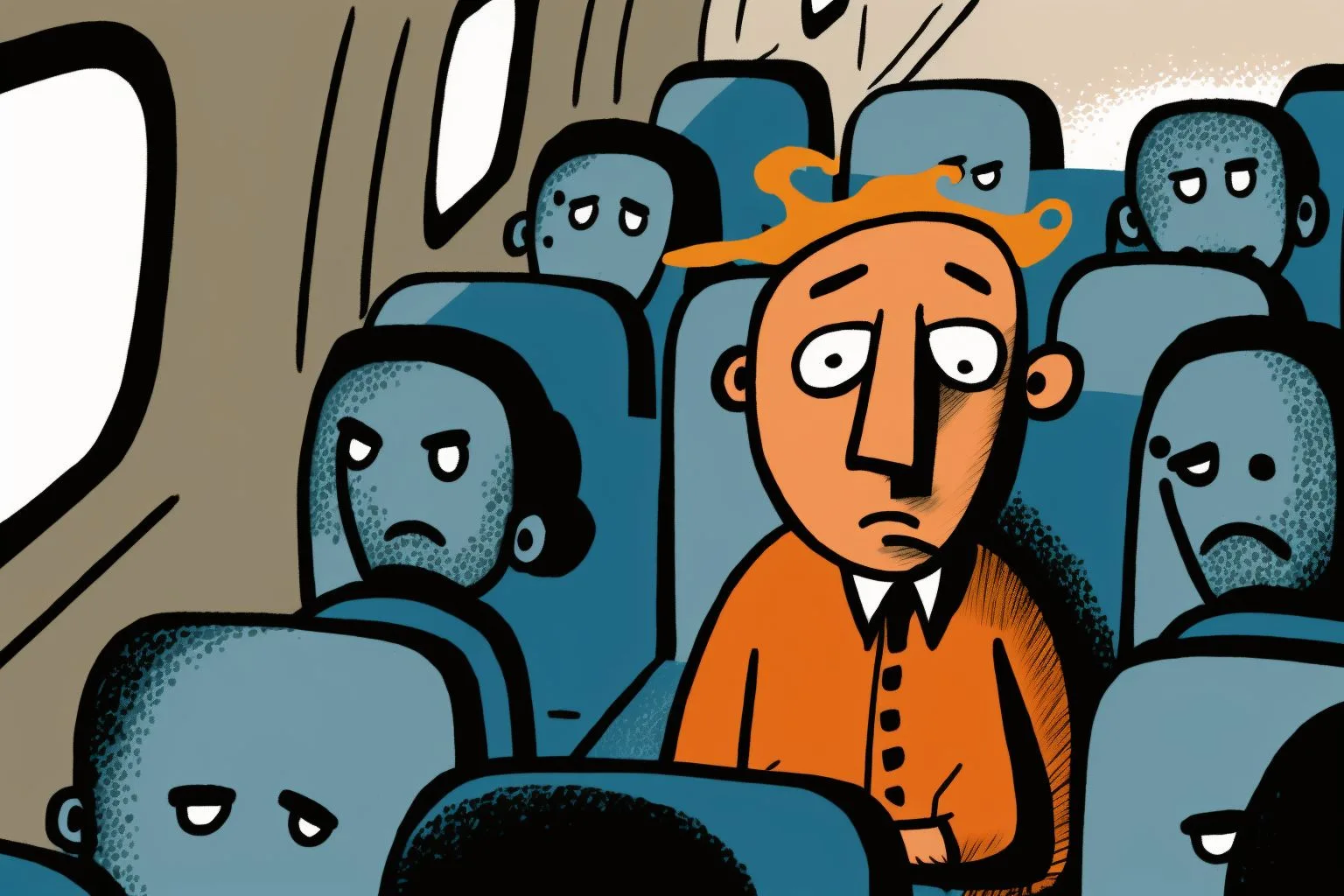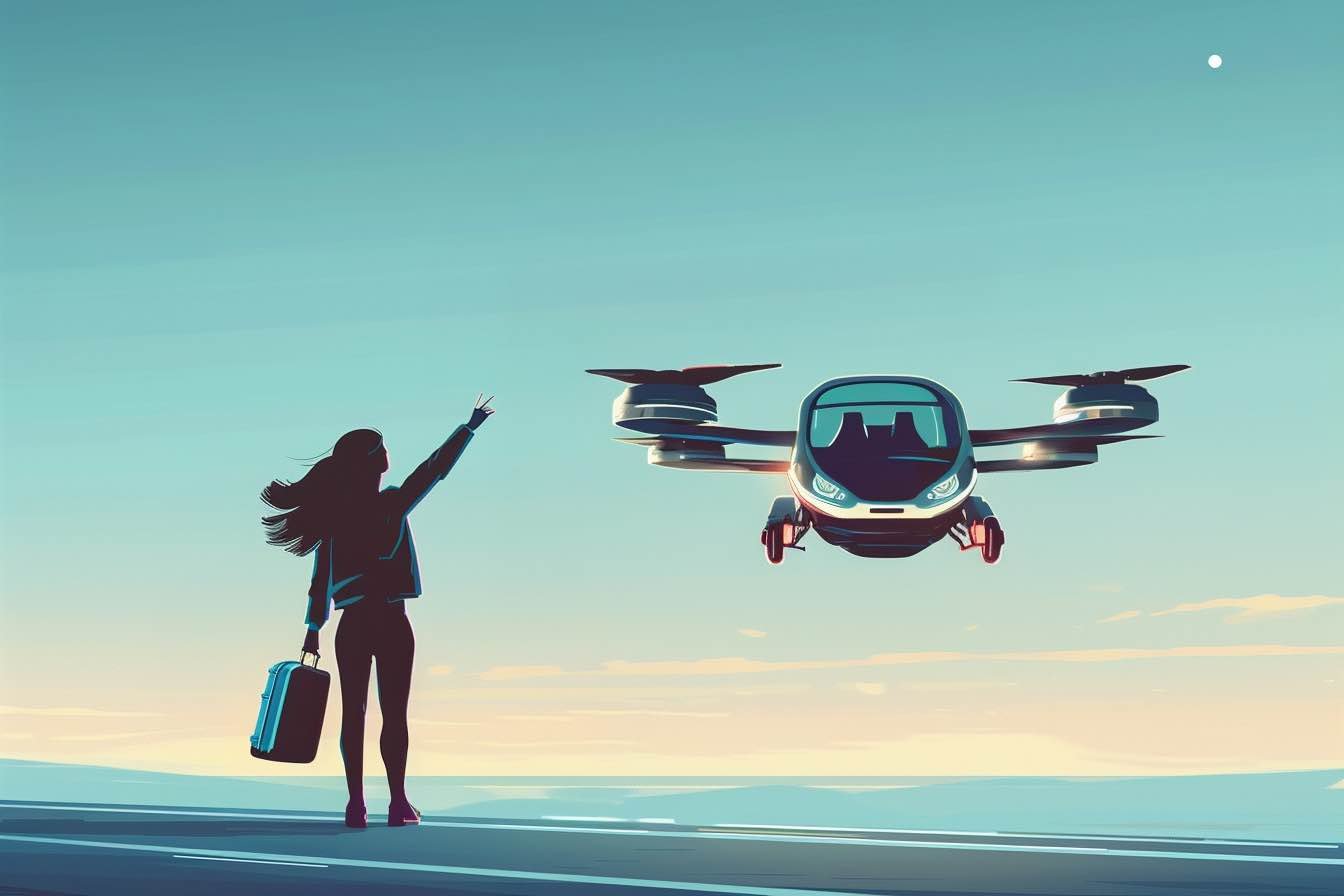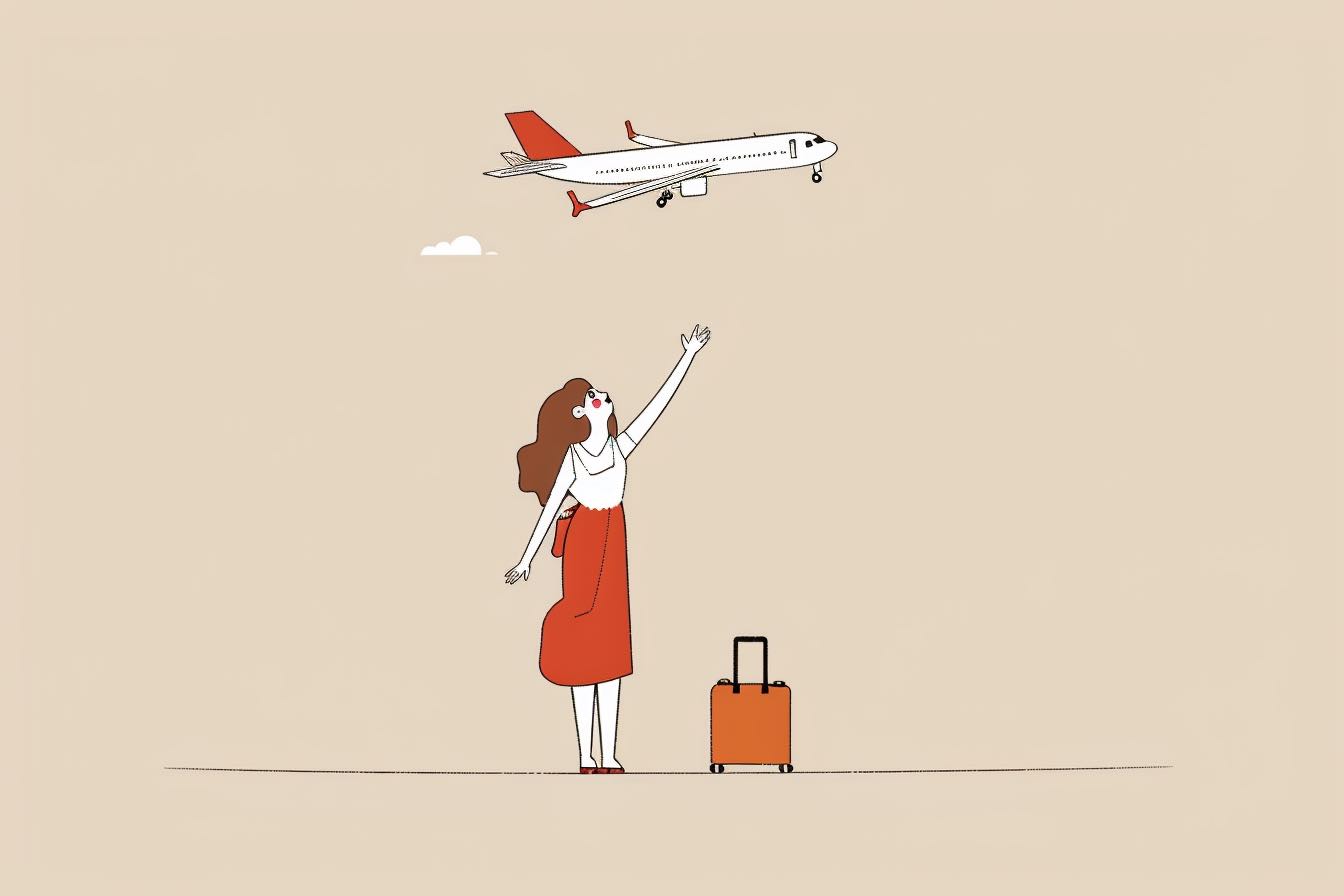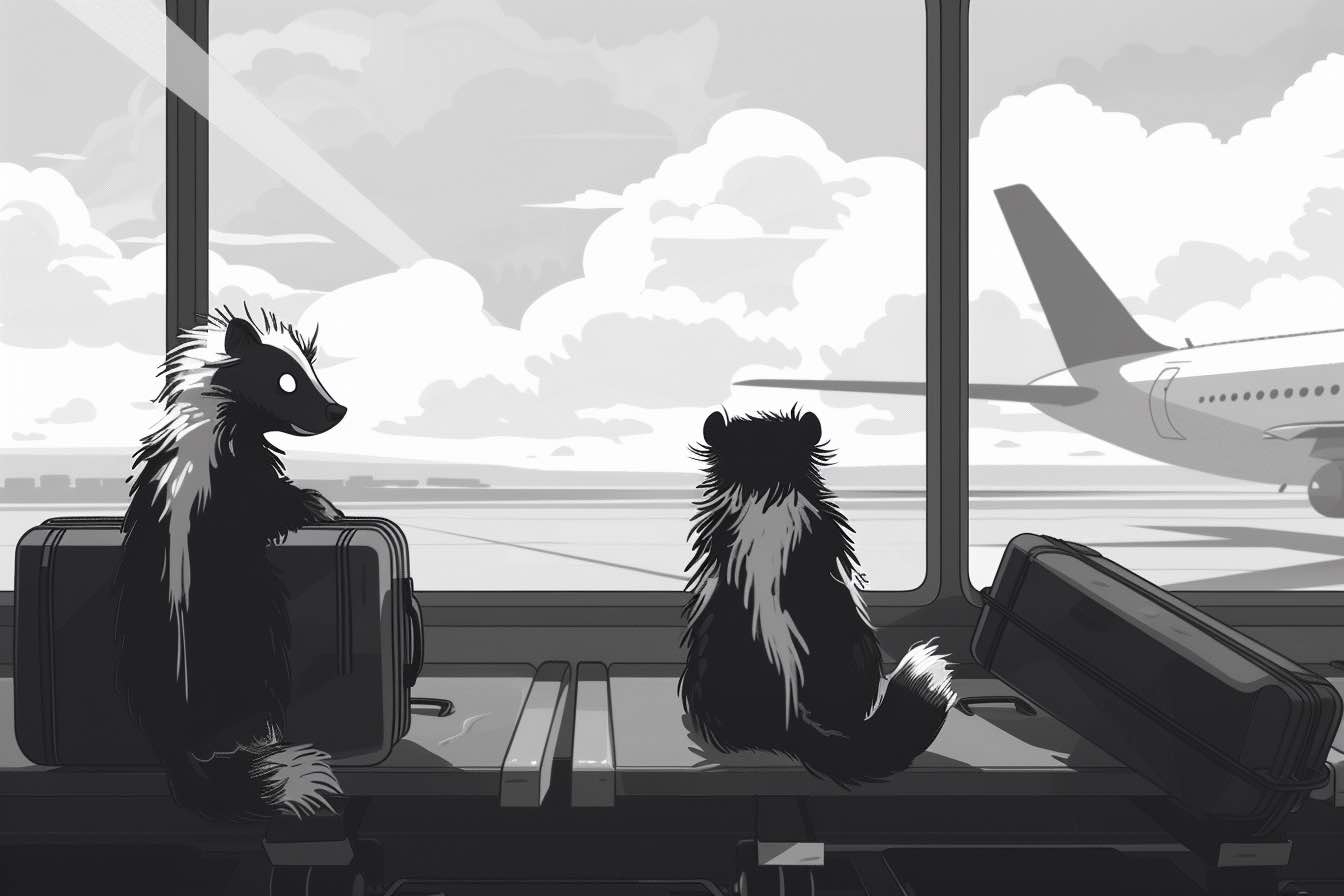The start of the summer travel season is only a few weeks away, but people in the know have already identified the most pressing problem: dangerously cramped airline seats or as we like to call it, the big summer squeeze.
Danielle Belyeu got a preview of the coming chaos on a recent flight from Paris to Atlanta.
“The passenger in front of me reclined,” remembers Belyeu. “He was literally in my lap.”
Belyeu’s only choice was to recline her seat to create a little more space, which triggered a domino effect in economy class. The person behind her had to ease her seat back to make up for the lost room. And the person behind her, too.
Belyeu knows a thing or two about personal space on flights. As a travel advisor, she’s watched coach-class seats go from reasonably comfortable to the point where you can hardly fit in them. And she thinks the worst is yet to come.
Cramped cabins are breeding grounds for midair conflicts. In just the last week, a passenger on a United Airlines flight attacked a flight attendant and tried to open a door, and two passengers on a Southwest Airlines flight got into an ugly brawl that turned into a viral video. So now what?
Here comes the summer squeeze
How much worse can the seats get? A lot worse.
“It’s price increases accompanied by a declining customer experience,” predicts Mario Matulich, president of Customer Management Practice.
Passengers got a small reprieve during the pandemic. Airlines, which had quietly eliminated legroom and personal space in economy class by the year, stopped moving their seats closer together because of the pandemic and social distancing concerns.
But now, with a serious threat of government regulation looming, domestic airlines are under pressure to shrink their seats as much as possible.
Late last year, six U.S. senators urged the Federal Aviation Administration to stop airlines from shrinking their seats. There’s a reasonably good chance the FAA will act, according to experts like Matulich, although it’s unclear when or even what it will do.
But airlines aren’t taking any chances. They’re squishing more passengers on their planes before the imposition of any new rules.
What the summer squeeze will feel like
So what will the summer seat squeeze feel like? Just ask Marian Styles who flew from San Francisco to Sydney last month. On her aircraft, a Boeing 777-300ER, the seats in economy class had been reconfigured from the original nine-seat-across layout to ten seats across.
Her 17-inch-wide seat made her feel like she was in a straightjacket, says Styles, a retired technical editor from Charlottesville, Va.
“The entire flight was miserable, and I was awake for all 15 hours of it,” she added.
Mike Heck, vice president of supplier solutions for Fox World Travel, predicts passengers who haven’t flown in a while will be shocked to see the reduction in seat pitch and width.
“With flights being fuller, there is a very good possibility that we will see an increase in tensions over decreased personal seat space,” he says. (Related: Here it is: Your survival guide for the summer of 2023.)
That’s the polite way of describing the coming airline seat wars. The flashpoints include:
- Reclining seats skirmishes. With only 28 to 31 inches of space between seats in economy class, passengers are doing whatever they can to create more space, including pushing, prodding, leaning and bullying.
- Armrest territorial conflicts. Some airlines have narrowed their seats to fit more passengers on a plane. That means many travelers won’t be able to fit in their seats and will spill over to the armrest. Conflicts are impossible to avoid.
- Overhead bin blowups. With space at a premium, there isn’t enough space for a carry-on bag. Passengers will go to war over their right to the overhead bin space.
A rare combination of record demand, full flights, smaller seats and the first summer without the ever-present threat of pandemic shutdown is fueling this conflict.
What to do about the summer airline seat squeeze
So what to do about this coming crisis? I mean, besides not fly? (Here’s how to get a refund on a nonrefundable airline ticket.)
To survive the summer squeeze, experts say you’ll have to adopt an unusual attitude. Since these could be the most cramped flying conditions in modern history — and that is not hyperbole — you’ll have to assume the worst will happen.
Etiquette expert Adeodata Czink, who usually is all about fairness and respect, says passengers should not even put their arms on the armrests.
“It’s tough, but you don’t want to have a really bad neighbor for eight hours,” she says.
Ditto for luggage.
“On an airplane, everything is shared space and nobody owns anything, including the overhead bin above your seat,” says Nick Leighton, host of the weekly etiquette podcast, Were You Raised By Wolves?
This advice is a departure from what etiquette experts were preaching before the pandemic. Back then, they advocated for common courtesy and fairness. Now, to keep the cabin from erupting in conflict, they’re advising their clients to back down and not to stake a claim on anything — not the armrest, the personal space, the overhead luggage storage.
Is that a solution to the dangerously cramped airline?
That’s a short-term fix for the summer squeeze. Sure, backing down and letting someone else claim the armrest, lean into your space and use the overhead bin space is one way to remove all conflict.
But it solves nothing over the long term.
We are still stuck in a pressurized aluminum tube, hurtling through the air at 500 miles per hour. And the airline industry has the audacity to say that passengers asked for these claustrophobia-inducing seats because we wanted low fares. What nonsense. No one asked for this.
Speaking of cheap fares, I asked Jeff Klee, CEO of CheapAir.com, what he thought would fix the summer squeeze.
“There is not much hope for economy class passengers without more government regulation,” he told me.
Maybe it’s that simple. The free market was supposed to lower fares and give us more choices. But the free market didn’t deliver. We have higher fares and fewer choices — and dangerous flying conditions. Maybe the only long-term fix to the summer squeeze is careful government regulation to ensure no one else gets hurt.




